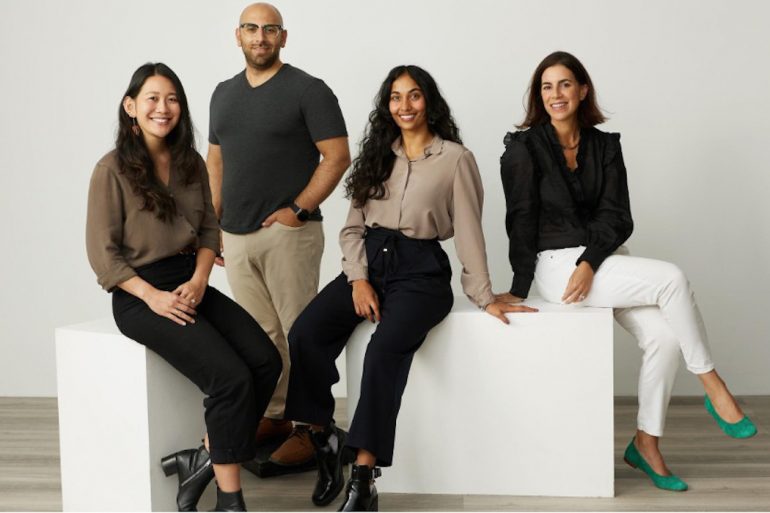Toronto-based Amplify Capital has secured the final close for its second impact investment fund, raising a total $30.7 million CAD—exceeding its initial $30 million goal.
Founded in 2016 as the MaRS Catalyst Fund with a $5.8 million Fund I, Amplify rebranded and spun out of the MaRS Discovery District in 2019. Led by private equity veteran and Managing Partner Kathryn Wortsman, Amplify backs early-stage Canadian healthtech, edtech, and cleantech startups at the seed and Series A stages.
“We want to support traditional investors thinking about [that] double bottom line.”
-Kathryn Wortsman, Amplify
With its much larger Fund II, Wortsman told BetaKit in an interview that Amplify aims to build on its Fund I track record and thesis, increase its presence in Québec, and help more traditional investors think about impact investing.
Amplify launched Fund II in 2020, securing its first close in July. Since then, the firm has been actively fundraising, closing additional funding, and invested in seven companies.
Fund II’s investor base includes limited partners Royal Bank of Canada, Fondation Lucie et André Chagnon, Fondaction, VanCity, Jona Capital, Toronto Foundation, Metcalf Foundation, Hamilton Community Foundation, Mirella and Lino Saputo Foundation, and a number of undisclosed family offices with ties to Canada’s tech and innovation sector.
Amplify invests in companies that deliver both social and financial returns, managing $37 million across its two funds. Amplify’s stated mission is “to catalyze the democratization of global health, education, and a sustainable environment,” an approach that aligns with the United Nations’ sustainable development goals.
Amplify is part of a wave of Toronto-based venture funds that have come out of MaRS in recent years. This group includes ArcTern Ventures, which focuses on cleantech companies, StandUp Ventures, which invests in women-led startups, and most recently, Graphite IAF.
RELATED: ALT TEX closes $1.5 million pre-seed round to commercialize sustainable polyester alternative
Amplify seeks to lead, co-lead, and participate in funding rounds for startups that are ready to scale in these three sectors, writing initial cheques of between $500,000 and $1 million at the seed and Series A stages, with additional capital reserved for follow-on investments in portfolio companies. The firm invests across Canada and selectively in the United States, where it can allocate up to 30 percent of its capital.
The firm aims to invest in a total of 20 to 22 companies through Fund II, and has already made significant headway towards this goal through its first seven investments. To date, Wortsman said Amplify has deployed about 22 percent of its $30.7 million in Fund II capital, backing a list of companies that includes Toronto-based sustainable textile startup ALT TEX and healthtech firm Verto Health.
Through Fund I, which Wortsman claimed generated “really good returns” that were “on par with the best VCs” according to Preqin, Amplify made 10 investments, including Toronto-based long duration energy storage solution provide Hydrostor, which recently raised $250 million USD from Goldman Sachs; and mental health startup Inkblot, which it backed then exited as part of its acquisition by Green Shield last year.
Wortsman said Amplify’s Fund I track record and strong returns, along with a shift in attitudes towards impact investing, made it easier for Amplify to raise Fund II.
Amplify is just one of a growing number of Canadian impact investment funds, a list that includes Telus’ Pollinator Fund for Good, Toronto’s Cross-Border Impact Ventures, and Vancouver’s Active Impact Investments.
RELATED: MaRS launches new $100 million Graphite IAF fund
Since Amplify’s first fund, Wortsman said that the impact investing environment has “changed really dramatically” in the US, where adoption has been “significant.”
“In Canada, there’s still a lot of hesitancy,” said Wortsman. “We’re starting to see a little bit, like Hydrostor is a great example. But we need more of those proof points for investors to say ‘okay, I believe that I can make money.’”
Wortsman argued that impact investing can generate good returns, citing a few positive contributing factors: millennials shifting towards more conscious consumerism; companies that have begun to care more about environmental, social, and governance (ESG) criteria; and a competitive talent market where impact can serve as a differentiator.
“We’re seeing all those market dynamics are improving bottom line,” she said.
According to Wortsman, the name Amplify Capital comes from wanting to amplify impact investing in Canada. “We want to support traditional investors thinking about [that] double bottom line,” she said.
Amplify asks all of its portfolio companies to undergo the B Corp assessment, which provides them with an ESG rating, and requests that they have a conversation at the board level to require an impact key performance indicator (KPI) as part of their reporting. In addition to supporting its own impact investing efforts, Wortsman said this enables its co-investors to see the financial benefits of an impact-based approach.
Amplify has also announced plans to open a Montréal office at Espace CDPQ in March to tackle opportunities Wortsman said the firm sees in Québec, citing the strength of the province’s tech startups and support ecosystem.
“Fund I … was just Canada, and more and more, we saw great deal opportunity in Québec,” she said. “It was, again, a little less discovered, just wasn’t as competitive [and] there weren’t as many seed stage investors in Québec. Now it’s a little bit more competitive, but we continue to see great companies coming out [of the province].”
To support its growth, Amplify has increased the size of its team, adding two new analysts to its ranks in Jotham Chow and Andrew Newton. The firm also plans to add another partner later this year.
Feature image courtesy Amplify Capital.


